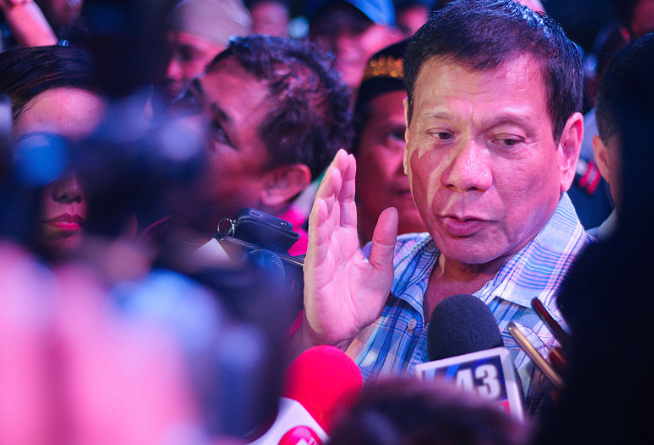
©Keith Bacongco: https://goo.gl/lPYtud
A Duterte administration may take a somewhat different approach to foreign policy and display a governance style unnerving to some, but like most other governments, its behavior will be defined by a more traditional factor: national interest.
Philippine relations with China require effectively managing maritime disputes in the South China Sea so that the Philippines can benefit from the ocean’s resources, be secure against external threats and maintain a rules-based order to ensure both. To the extent that the United States can help promote these interests without adding to the risk of armed conflicts, the interests of Manila and Washington will continue to converge.
Relations with the United States are underpinned by a 65-year-old mutual defense treaty, more recent pacts like the 2014 Enhanced Defense Cooperation Agreement, as well as intensive commercial and personal ties and an affinity in worldview. These remain unchanged, as long as Duterte sees that the United States continues to respect and be sensitive to Filipinos’ national pride.
But China’s behavior can shape Washington’s relations with Duterte. Whether China shows itself to be reasonable and accommodating or overbearing and high-handed in response to the arbitration ruling over China’s expansive claims in the South China Sea -- which Manila has indirectly challenged -- will have some influence on whether Duterte steps back from or moves even closer to the United States. And if Washington continues to try to rebalance its international posture toward Asia, it will need Duterte and the support of the Filipinos as much as the Philippines will need Washington.
American officials may be worried about Duterte’s checkered past as local strongman in Davao, prone to cut legal corners, but after two decades in office, he transformed what had been a lawless, crime-riddled, insurgency-infested city (like many in developing countries) into a more orderly, thriving and progressive community. Perhaps more of a reason to trust, than to distrust him.
This article was first published in The New York Times: http://goo.gl/y7xSvZ
